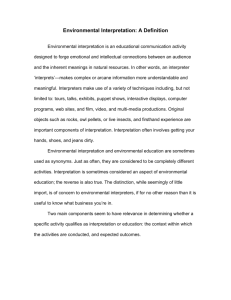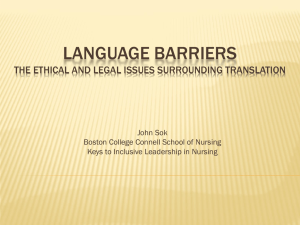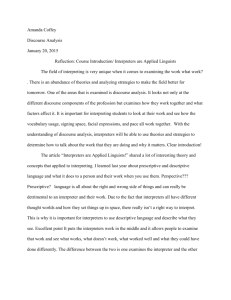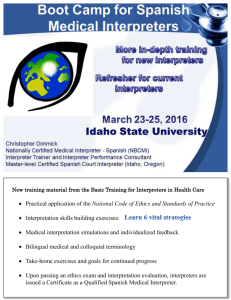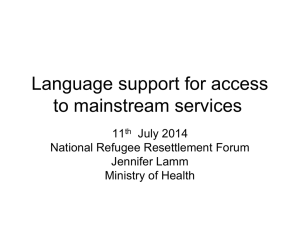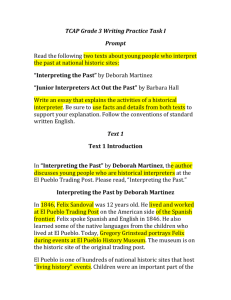Written Answers, 07 March 2012
advertisement
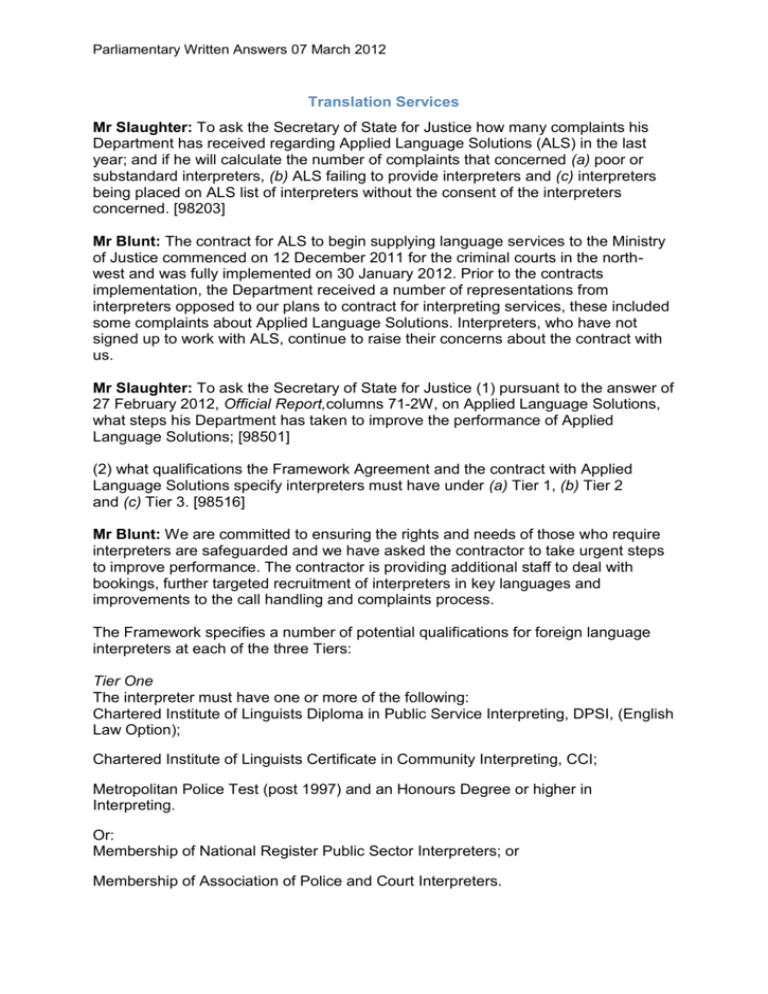
Parliamentary Written Answers 07 March 2012 Translation Services Mr Slaughter: To ask the Secretary of State for Justice how many complaints his Department has received regarding Applied Language Solutions (ALS) in the last year; and if he will calculate the number of complaints that concerned (a) poor or substandard interpreters, (b) ALS failing to provide interpreters and (c) interpreters being placed on ALS list of interpreters without the consent of the interpreters concerned. [98203] Mr Blunt: The contract for ALS to begin supplying language services to the Ministry of Justice commenced on 12 December 2011 for the criminal courts in the northwest and was fully implemented on 30 January 2012. Prior to the contracts implementation, the Department received a number of representations from interpreters opposed to our plans to contract for interpreting services, these included some complaints about Applied Language Solutions. Interpreters, who have not signed up to work with ALS, continue to raise their concerns about the contract with us. Mr Slaughter: To ask the Secretary of State for Justice (1) pursuant to the answer of 27 February 2012, Official Report,columns 71-2W, on Applied Language Solutions, what steps his Department has taken to improve the performance of Applied Language Solutions; [98501] (2) what qualifications the Framework Agreement and the contract with Applied Language Solutions specify interpreters must have under (a) Tier 1, (b) Tier 2 and (c) Tier 3. [98516] Mr Blunt: We are committed to ensuring the rights and needs of those who require interpreters are safeguarded and we have asked the contractor to take urgent steps to improve performance. The contractor is providing additional staff to deal with bookings, further targeted recruitment of interpreters in key languages and improvements to the call handling and complaints process. The Framework specifies a number of potential qualifications for foreign language interpreters at each of the three Tiers: Tier One The interpreter must have one or more of the following: Chartered Institute of Linguists Diploma in Public Service Interpreting, DPSI, (English Law Option); Chartered Institute of Linguists Certificate in Community Interpreting, CCI; Metropolitan Police Test (post 1997) and an Honours Degree or higher in Interpreting. Or: Membership of National Register Public Sector Interpreters; or Membership of Association of Police and Court Interpreters. Parliamentary Written Answers 07 March 2012 Together with: At least 100 hours public sector interpreting experience; 7 Mar 2012 : Column 760W References; and A pass at the assessment centre to the tier one standard. Tier Two The interpreter must have one or more of the following: ‘Partial DPSI’ i.e. the interpreter must have passed all modules with the exception of written translation; A degree in linguistics, English philology, Modern Languages or MA in Teaching of English, or other language related diplomas where English figures as part of the course completed. Together with: Previous or current employment in criminal justice services in their countries of origin, Legal training in the UK or abroad, or other exposure to criminal justice work through other channels is also acceptable (volunteer and/or paid work in the community for police services or work for Victim Support, for example); University level education (any degree); At least 100 hours public sector interpreting experience; References; and A pass at the assessment centre to the tier two standard. Tier Three The interpreter must have one or more of the following: Demonstrable experience in the public sector with appropriate linguistic background; Formalised basic interpreter training including one of the following: the WEA programmes, Bi-Lingual Skills Certificates, Community Level Interpreting Degrees under the NVQ certification system. Together with: References; and A pass at the assessment centre to the tier three standard. It is also desirable for tier three interpreters to have at least 100 hours public sector interpreting experience. Rare languages In the case of rare languages where the DPSI or equivalent qualification is not available, the interpreter must have the Cambridge Proficiency in English Certificate, Parliamentary Written Answers 07 March 2012 100 hours of public sector interpreting experience, evidence of continuous professional development, references and a pass at the assessment centre. Mr Slaughter: To ask the Secretary of State for Justice whether he was advised by (a) Applied Language Solutions (ALS) and(b) counsel to ALS not to launch the new interpreters' framework agreement across the whole country at one time. [98646] Mr Blunt: We considered a range of implementation options in our discussions with Applied Language Solutions. ALS confirmed that they could deliver the services required through national implementation following a successful trial in the North West. We have not been party to any discussions with counsel to ALS. Mr Slaughter: To ask the Secretary of State for Justice if he will place in the Library copies of information collated from Crown Courts in London on a weekly basis on problems with the implementation of the Applied Languages Solutions contract. [98648] Mr Djanogly: We are aware that some courts may be gathering information to use as local management tools. Any such information is not being collated centrally. The Ministry will consider what information it can usefully publish in due course.


